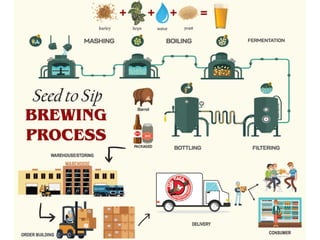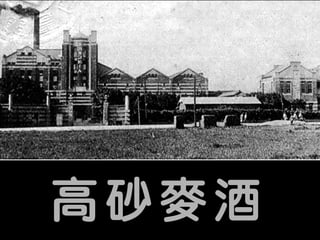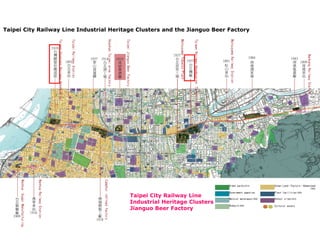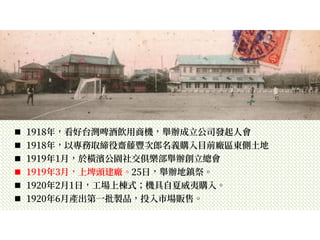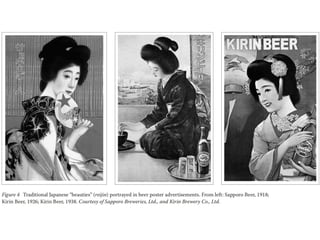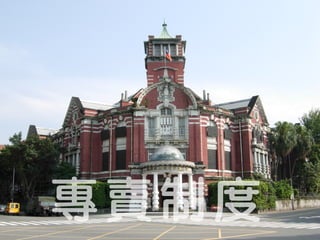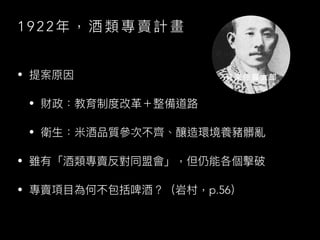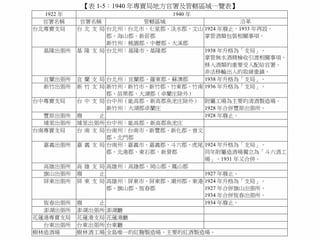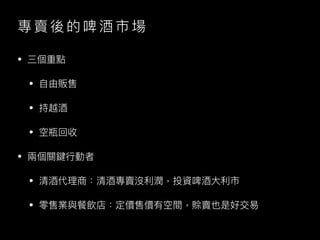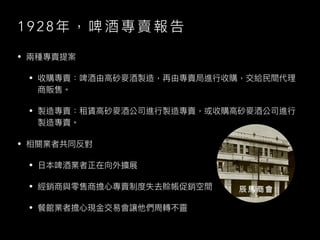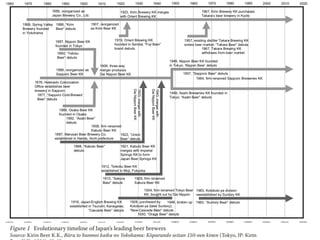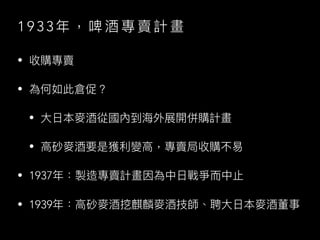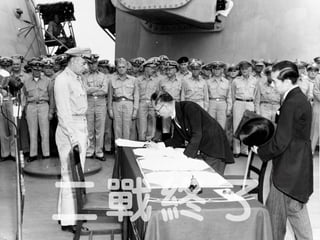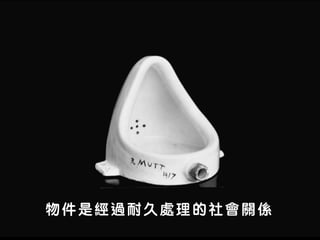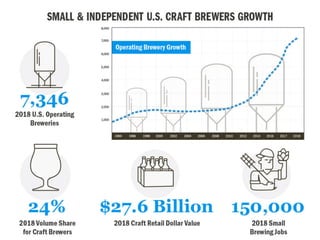开场白:啤酒的诞生
- 1. 啤 酒 的 誕 生
- 8. 高 砂 麥 酒
- 9. 想 蓋 啤 酒 廠 ? ? ?然條件 ? ?業區位 ? ?地?積 ? 污?排放 ? 交通建設
- 10. Ta e C Ra a L e I d a He age C e J a g Bee Fac Ta e C Ra a L e I d a He age C e a d he J a g Bee Fac
- 14. 專 賣 制 度
- 15. 1 9 2 2 年 , 酒 類 專 賣 計 畫 ? 提案原因 ? 財政:教育制度改?+整備道路 ? 衛?:米酒品質參次不?、釀造環境養豬髒亂 ? 雖有「酒類專賣反對同盟會」,但仍能各個擊破 ? 專賣項?為何不包括啤酒?(岩村,p.56) 賀 來 佐 賀 太 郎
- 17. 專 賣 後 的 啤 酒 市 場 ? 三個重點 ? ?由販售 ? 持越酒 ? 空瓶回收 ? 兩個關鍵?動者 ? 清酒代理商:清酒專賣沒利潤,投資啤酒?利市 ? 零售業與餐飲店:定價售價有空間,賒賣也是好交易
- 18. 1 9 2 8 年 , 啤 酒 專 賣 報 告 ? 兩種專賣提案 ? 收購專賣:啤酒由?砂麥酒製造,再由專賣局進?收購,交給?間代理 商販售。 ? 製造專賣:租賃?砂麥酒公司進?製造專賣,或收購?砂麥酒公司進? 製造專賣。 ? 相關業者共同反對 ? ?本啤酒業者正在向外擴展 ? 經銷商與零售商擔?專賣制度失去賒帳促銷空間 ? 餐館業者擔?現?交易會讓他們周轉不靈 辰 ? 商 會
- 20. 1 9 3 3 年 , 啤 酒 專 賣 計 畫 ? 收購專賣 ? 為何如此倉促? ? ??本麥酒從國內到海外展開併購計畫 ? ?砂麥酒要是獲利變?,專賣局收購不易 ? 1937年:製造專賣計畫因為中?戰爭?中? ? 1939年:?砂麥酒挖麒麟麥酒技師、聘??本麥酒董事
- 21. 二 戰 終 了
- 22. 紹 興 高 粱 啤 酒 江浙菜 軍民一體 如何成為日常?
- 24. 物 件 是 經 過 耐 久 處 理 的 社 會 關 係




